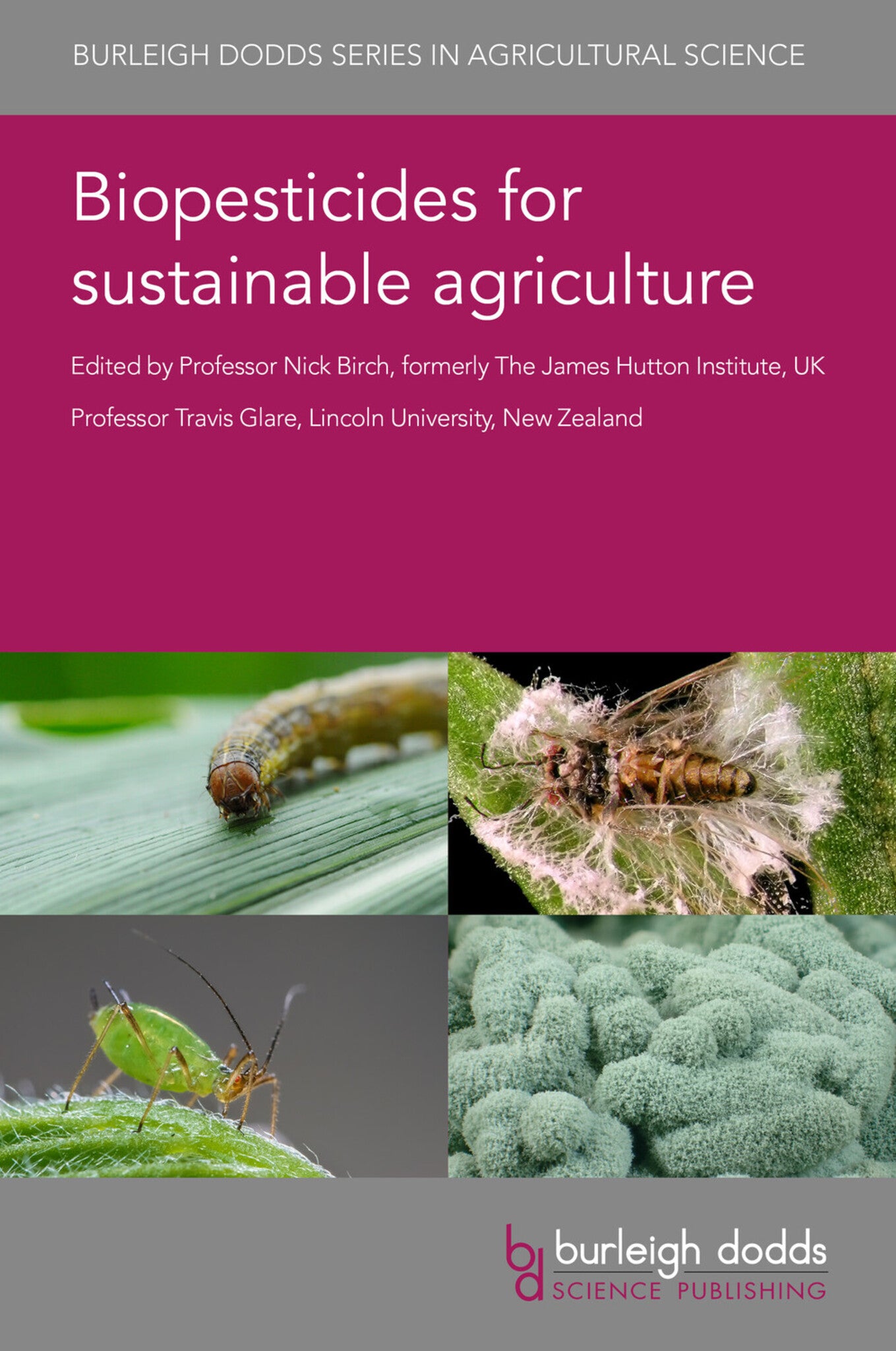We're sorry. An error has occurred
Please cancel or retry.
Biopesticides for sustainable agriculture

Some error occured while loading the Quick View. Please close the Quick View and try reloading the page.
Couldn't load pickup availability
- Format:
-
24 March 2020

- Reviews key steps in biopesticide product development
- Comprehensive coverage of the range of biopesticides, from microbial to natural substance-based biopesticides
- Strong focus on pheromone and allelochemical semiochemicals as well as peptide-based biopesticides

TECHNOLOGY & ENGINEERING / Pest Control, Pest control / plant diseases, TECHNOLOGY & ENGINEERING / Agriculture / Agronomy / Crop Science, TECHNOLOGY & ENGINEERING / Agriculture / Sustainable Agriculture, Sustainable agriculture, Agronomy and crop production

"This book provides a decent overview of recent advances in biopesticides and other biological options for insect management with an easy-to-follow format and content…a good resource for students, educators, researchers, regulators, agricultural partners and IPM implementors interested in sustainable agriculture."
(Society for Invertebrate Pathology Newsletter)
Part 1 General
1.Improving methods for developing new microbial biopesticides: Susan M. Boyetchko, Agriculture and Agri-Food Canada, Canada;
2.Implementing biopesticides as part of an integrated pest management (IPM) programme : József Kiss, Szent István University, Hungary; and Marc Delos, Académie d’Agriculture de France, France;
3.Improving regulatory approval processes for biopesticides and other new biological technologies in agriculture: Wyn Grant, University of Warwick, UK; and Roma Gwynn, Biorationale, UK ;
Part 2 Microbial biopesticides, entomopathogenic nematodes and mites
4.Advances in the use of entomopathogenic fungi as biopesticides in suppressing crop pests: Enrique Quesada-Moraga, Meelad Yousef-Naef and Inmaculada Garrido-Jurado, University of Cordóba, Spain;
5.Advances in the use of entomopathogenic bacteria/microbial control agents (MCAs) as biopesticides in suppressing crop insect pests: Tejas Rao and Juan Luis Jurat-Fuentes, University of Tennessee, USA;
6.Advances in the use of Bt genes in insect-resistant crops: Salvatore Arpaia, ENEA Research Centre Trisaia-Rotondella (MT), Italy;
7.Plant growth-promoting bacteria (PGPBs) as biocontrol agents against invertebrate pests: Luca Ruiu, Università degli Studi di Sassari, Italy;
8.Advances in the use of entomopathogenic viruses as biopesticides in suppressing crop insect pests: Martin Erlandson, Agriculture and Agri-Food Canada, Canada;
9.Advances in the use of entomopathogenic nematodes (EPNs) as biopesticides in suppressing crop insect pests: Albrecht M. Koppenhöfer, Rutgers University, USA; David I. Shapiro-Ilan, USDA-ARS, USA; and Ivan Hiltpold, University of Delaware, USA;
10.Advances in the use of entomopathogenic oomycetes as biopesticides in suppressing crop insect pests: Aurélien Tartar, Nova Southeastern University, USA;
Part 3 Natural substance-based biopesticides
11.Advances in the use of semiochemicals in integrated pest management: pheromones: Gadi V. P. Reddy, USDA-ARS, Southern Insect Management Research Unit, USA; Anamika Sharma, Montana State University, USA; and Angel Guerrero, Institute of Advanced Chemistry of Catalonia-CSIC, Spain;
12.Possible use of allelochemicals in integrated pest management (IPM): Toby Bruce, Keele University, UK;
13.Peptides as novel biopesticides: Lin Bao, Robert M. Kennedy, Kyle Schneider, Alvar Carlson and Andy Renz, Vestaron Corporation, USA;
14.Development of plant-derived compounds as biopesticides: Barbara Thuerig and Lucius Tamm, Research Institute of Organic Agriculture (FiBL), Switzerland;



